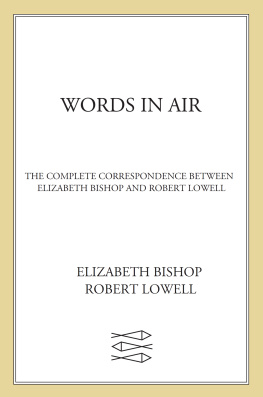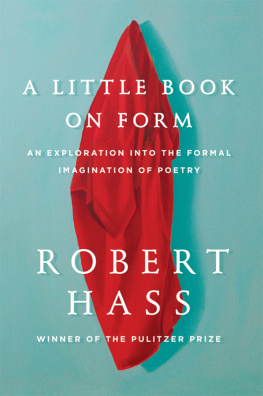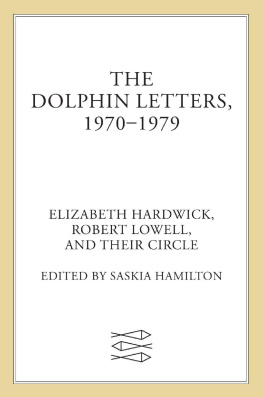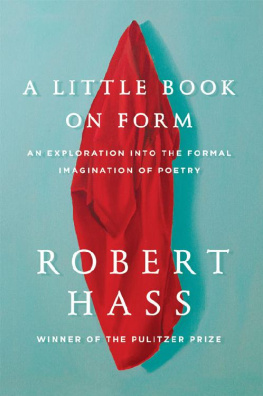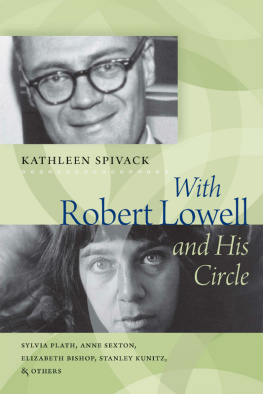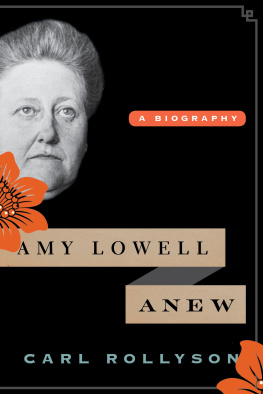Lowell Robert - Robert Lowell: a biography
Here you can read online Lowell Robert - Robert Lowell: a biography full text of the book (entire story) in english for free. Download pdf and epub, get meaning, cover and reviews about this ebook. City: London, year: 2011, publisher: Faber & Faber, genre: Non-fiction. Description of the work, (preface) as well as reviews are available. Best literature library LitArk.com created for fans of good reading and offers a wide selection of genres:
Romance novel
Science fiction
Adventure
Detective
Science
History
Home and family
Prose
Art
Politics
Computer
Non-fiction
Religion
Business
Children
Humor
Choose a favorite category and find really read worthwhile books. Enjoy immersion in the world of imagination, feel the emotions of the characters or learn something new for yourself, make an fascinating discovery.
- Book:Robert Lowell: a biography
- Author:
- Publisher:Faber & Faber
- Genre:
- Year:2011
- City:London
- Rating:5 / 5
- Favourites:Add to favourites
- Your mark:
- 100
- 1
- 2
- 3
- 4
- 5
Robert Lowell: a biography: summary, description and annotation
We offer to read an annotation, description, summary or preface (depends on what the author of the book "Robert Lowell: a biography" wrote himself). If you haven't found the necessary information about the book — write in the comments, we will try to find it.
Robert Lowell: a biography — read online for free the complete book (whole text) full work
Below is the text of the book, divided by pages. System saving the place of the last page read, allows you to conveniently read the book "Robert Lowell: a biography" online for free, without having to search again every time where you left off. Put a bookmark, and you can go to the page where you finished reading at any time.
Font size:
Interval:
Bookmark:
My thanks to the following: William Alfred, A. Alvarez, Betty B. Ames, Rolando Anzilotti, Alison Armstrong, James Atlas, Steven Gould Axelrod, Elizabeth Bettman, Frank Bidart, Caroline Blackwood , Philip Booth, Keith Botsford, Christina Brazelton, Cecile Boyajian, Cleanth Brooks, Esther Brooks, Peter Brooks, Shepherd Brooks, Alan Brownjohn, Gertrude Buckman, Alistair Cameron, Brainard Cheney, Frances Neel Cheney, Blair Clark, Alexander Cockburn, Malcolm Cowley, Carley Dawson, Richard Demenocal, Liberty Dick, Harry Duncan, Richard Eberhart, Philip Edwards, Holly Eley, Valerie Eliot, Barbara Epstein, Richard J. Fein, Robert Fitzgerald, Sally Fitzgerald, George Ford, Jonathan Galassi, Robert Giroux, Grey Gowrie, Simon Gray, Matthew Hamilton, Stuart Hamilton, Xandra Hardie, Elizabeth Hardwick, Lillian Hellman, Dan Jacobson, Mary Jarrell, James Laughlin, Andrew Lytle, Robie Macauley, Giovanna Madonia, John P. Marquand, Eugene McCarthy, William Meredith, Dido Merwin, Jonathan Miller, Karl Miller, Charles Monteith, Sidney Nolan, Jacqueline Onassis, Frank Parker, Lesley Parker, Jim Peck, J. F. Powers, Patrick Quinn, Jonathan Raban, Craig Raine, Christopher Ricks, Martha Ritter, Frederick Seidel, Robert Silvers, Eileen Simpson, Natasha Spender, Stephen Spender, Donald Stanford, Hugh Staples, Richard Stern, Joan Stillman, William Styron, Peter Taylor, John Thompson, Helen Vendler, Vija Vetra, Robert Penn Warren, Peter White, Richard Wilbur, Marcella Winslow, Dudley Young, Thomas Daniel Young.
I am also indebted to the following librarians and libraries: Rodney Dennis and the staff of the Houghton Library, Harvard University ; Walter W. Wright, Dartmouth College Library; Thomas B. Greenslade, Chalmers Memorial Library, Kenyon College; Jean F. Preston, Firestone Library, Princeton University; Eve Lebo, University of Washington, Seattle; Paul T. Heffron, Manuscripts Division , Library of Congress; Alan M. Lathrop, Manuscripts Division, University of Minnesota Libraries; Diana Haskell, Special Collections , Newberry Library, Chicago; Saundra Taylor, Lilly Library, Indiana University, Bloomington; Mary Long, St. Marks School Library, St. Marks School, Southborough, Mass.; the Curator, Beinecke Library, Yale University; the Curator, Berg Collection, New York Public Library; the Librarian, Columbia University Library; Mary Rider, Vanderbilt University Library, Nashville, Tenn.
I am grateful to Jason Epstein of Random House for commissioning the book and for helping me to get it written, and to my agent, Gillon Aitken, for three years of friendship and encouragement. And finally, a specialyet still inadequatenote of thanks to Charis Ryder: her research assistance has been patient and resourceful, her editorial vigilance often unnervingly precise. In the actual making of this book, my chief debt is to her.
ROBERT LOWELL
Like Henry Adams, I was born under the shadow of the Dome of the Boston State House, and under Pisces, the Fish, on the first of March, 1917. America was entering the First World War and was about to play her part in the downfall of five empires.
The setting for this ominous nativity was a brownstone high on Bostons Beacon Hill, the town house of Arthur Winslow, Robert Lowells maternal grandfather. The house was fronted by two pillars copied from the Temple of Kings at Memphis, and every afternoon Grandfather Winslow, a stiff-necked, luxurious ramrod of a man, would station himself between these loutish props and survey his social gains. On the afternoon of March 1, 1917, he was probably well pleased. This new childfirst son of the union between two celebrated Boston nameswould surely prove another asset. Certainly, it was hard to see how such a flawless pedigree could engender positive embarrassment.
And this would have mattered quite a lot to Arthur. A Boston boy who had made his middle-sized pile as a mining engineer in Colorado, he was almost ridiculously proud of his descent from the New England Winslows who had supported George III. He wrote a history of the family that traced the Winslows back to Worcestershire. With manly lack of detail, he established that in 1620 Edward Winslow had come to America on the Mayflower; a year later, his brother John had followed, on the Fortune. John married Mary Chilton, who was credited with having been the first woman from the Mayflower to have stepped ashore on Plymouth Rock. And in 1817 Arthurs grandfather had married Sarah Stark of Dunbarton in New Hampshire. Sarah was a daughter of John Stark, a renowned general in the Revolutionary War. Arthur thus had both sides of the conflict in his blood.
Secretly, though, Arthur would have preferred all his neighbors to have been prerevolutionary. But he also had a taste for the celebrity conferred by guidebooks, and on this reckoning Chestnut Street already rated several stars. If a neighbor was of faulty stock, the chances were that he would make up for this by being famous. All in all, it wasnt the wrong street for a Winslow/Lowell to be born on.
Edwin Booth, for instance, had lived just across the street, and nearby Julia Ward Howe was still in residence (by this time so old and distinguished that one could forget she was a woman). So too was the neo-Gothic architect Ralph Adams Cram. Arthur had his doubts about Cram, but still made sure that he kept several of his drawings on display, thus continually enjoying the exalted ceremonial of seeing his own just derision continually defeated by his good nature.
Farther along Chestnut Street there were still richer pickings. Twenty buildings down the street, Francis Parkman had once lived, Oliver Wendell Holmes had just died, and on a clear day you didnt need a telescope to sight the late residence of Percival Lowell, the celebrated Boston astronomer who believed that there was also life on Mars.
The Winslows and the Lowells: on paper it was a spectacularly correct match. Perhaps because he was married to a whimsical Southerner from North Carolina and had spent five years at school in Stuttgart as a youth, Arthur Winslow espoused a brand of New England integrity that even hard-line Bostonians considered somewhat over-rhetorical and Prussian. Few, therefore, were surprised when, after having famously discouraged several of his daughter Charlottes suitors (Arthur would always place himself prominently within earshot when they came to visit her), he decided to smile upon the overtures of Robert Traill Spence Lowell. The Somerset Lowles [sic] may not have come over on the Mayflower, but they had been New Englanders since 1639, and were now firmly on the list of Massachusetts first families. The historical appropriateness comfortably overshadowed any judgment of the young naval lieutenant s personalitywhich, even at this early stage, was widely thought to be oafish and compliant. In the words of R.T.S.L.s aunt Beatrice: Bob hasnt a mean bone, an original bone, a funny bone in his body! Thats why I cant get a word he says. If he were mine, Id lobotomize him and stuff his brain with green peppers.
Most people seem to have felt this way about Bob Lowell, but Arthur Winslow was not looking to be replaced as the dominant figure in his favorite daughters life. Nor was Charlotte herself in need of any extra restraints upon her own natural bossiness. She had a man she worshiped; now she wanted one who would unquestioningly worship her. For both father and daughter, Bobs combination of weak character and strong lineage was indeed perfectly correct.
The union had been easily arranged. Charlottes best friend, Kitty Bowles, had become engaged to Alfred Putnam Lowell in the winter of 1915. It was at the engagement party that Charlotte first met Alfreds cousin Bob. Afterwards she said to Kitty: A Lowell and a naval officer. He must be a genius and a buccaneer. And Kitty replied, Bob is the most gentle, the most cheerful, the most modest, the most Euclidian man I have ever met. And Charlotte and Kittys friends in the Reading Club soon reported that the one sentence
Font size:
Interval:
Bookmark:
Similar books «Robert Lowell: a biography»
Look at similar books to Robert Lowell: a biography. We have selected literature similar in name and meaning in the hope of providing readers with more options to find new, interesting, not yet read works.
Discussion, reviews of the book Robert Lowell: a biography and just readers' own opinions. Leave your comments, write what you think about the work, its meaning or the main characters. Specify what exactly you liked and what you didn't like, and why you think so.


